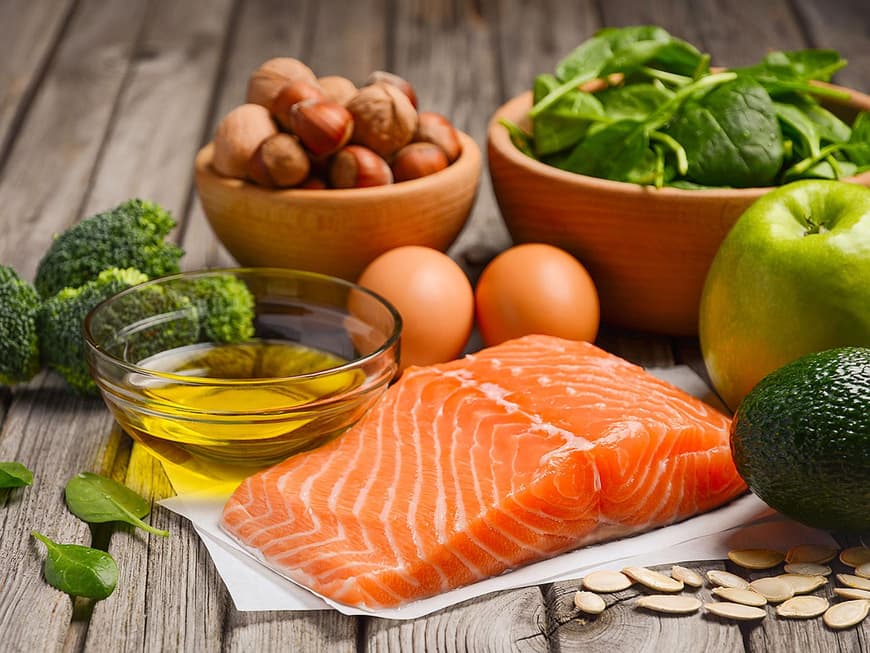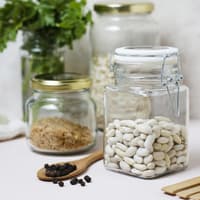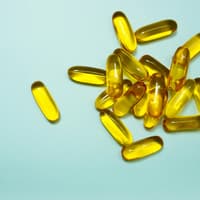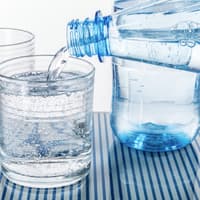
In a study, the German Nutrition Society determined the supply of Germans with the most important minerals and vitamins. Here you can find out which nutrient deficiencies are widespread, what the important substances are and what our body needs them for.
Typical nutrient deficiencies
Vitamin D
Why is it important? It ensures that calcium is stored in the bones and thus protects against osteoporosis. It is involved in many metabolic processes.
It's in here: Vitamin D is produced in the skin by the sun. And it is found in mushrooms, avocados and fish. We need 20 μg per day. There are also tablets in the pharmacy.
Folate
Why is it important? 0.3 mg of the B vitamin is needed daily for blood production and the formation of DNA. Pregnant women have an increased requirement (0.5 mg). If in doubt, ask your doctor for a check-up (costs approx. 17 euros)
It's in here: Pulses and liver contain this important vitamin. You can find many preparations in the pharmacy.
Iodine
Why is it important? Our thyroid gland needs 0.2 mg of this trace element per day to produce vital hormones.
Here's where it's found: in fish and algae. As we live in an iodine-deficient country, it is best to use iodized table salt.
Sometimes too little
Vitamin A
Why is it important? For eyesight, skin renewal and cell growth. A deficiency manifests itself in brittle fingernails.
This is where it's found: The daily requirement is 1 mg. This is contained in about 20 g of liver sausage.
Vitamin B12
Why is it important? For blood formation and cell growth. You need 3 mg a day.
Here's where it's found: only in animal foods. Vegans and vegetarians should take capsules from the pharmacy.
Vitamin C
Why is it important? We need 110 mg daily for teeth, connective tissue, bones, etc.
Here's where it's found: in fruit and vegetables - especially citrus fruits, peppers, kiwis and kale.
Vitamin E
Why is it important? It fends off cell-damaging free radicals, which can cause cancer under certain circumstances.
Here's where it's found: in vegetable cooking oils and almonds. The daily requirement is 12 mg.
Vitamin K
Why is it important? For blood clotting; and it inhibits bone loss in women after the menopause and reduces the risk of arteriosclerosis and diabetes. Our daily requirement: 70 μg.
Here it is: in all types of cabbage, spinach, oatmeal. If you have to take anticoagulant medication, you should discuss your diet with your doctor.
Magnesium
Why is it important? The mineral is involved in more than 600 metabolic processes. It strengthens bones, stabilizes cells, relaxes muscles and nerves and provides energy in the body. We need 300 mg to 400 mg daily - calf cramps indicate a deficiency.
Here's where it's found: in cocoa, nuts, oatmeal, linseed and sunflower seeds.
Zinc
Why is it important? The mineral activates the immune system and strengthens the body's defenses. The body needs up to 16 mg per day.
Here's where it's found: ideal sources of zinc are meat, dairy products, shrimp, corn, legumes, peanuts, red muscle meat, wheat germ, hard cheese, oatmeal, sunflower seeds and other seeds.
You may also be interested in this:
Iron deficiency and its symptoms: Constantly tired and listless?
Vitamin D: This is how dangerous a vitamin D deficiency is
The best sources of vitamin C
Our vitamin requirements - how high are they really?
Mango, the vitamin A bomb: what the tropical fruit can do
The most important vitamins for the eyes: to maintain vision for a long time
Preventing vitamin D deficiency: soak up some more sun
Date: 29.06.2020






